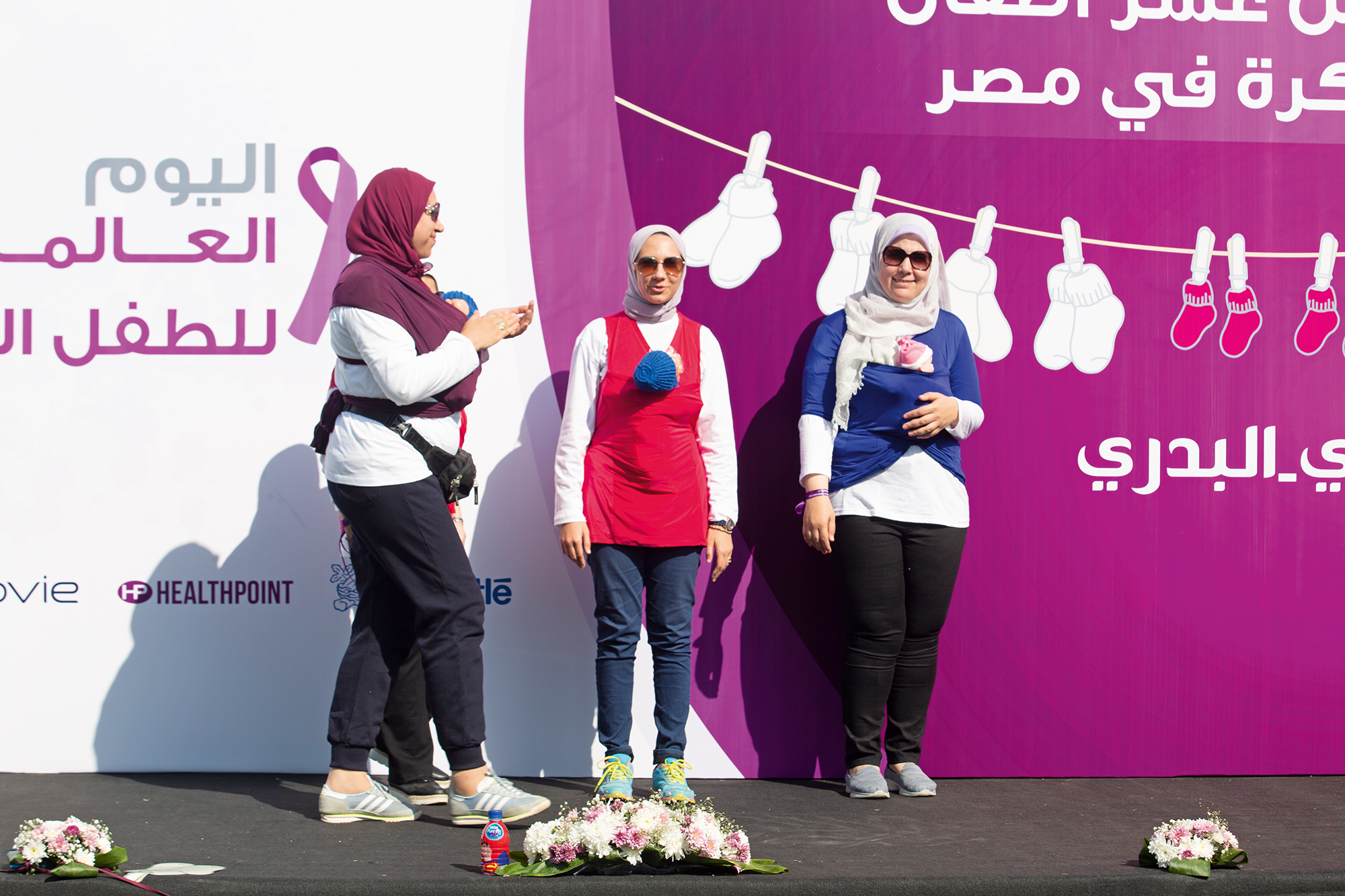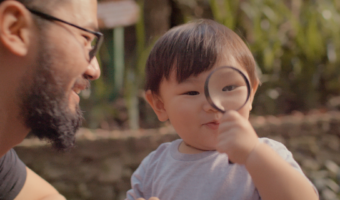Egypt is a young country, with 35% of the population aged below 18 and 2.5 million births a year. Yet it has among the world’s highest incidences of malnutrition, stunting, obesity, unnecessary Caesarean section, premature birth, perinatal mortality, and genetic diseases. Beyond the country’s economic challenges, the main reasons for these problems are lack of awareness among communities about the importance of the early years, and lack of training among health system professionals in early childhood development.
Our Dream Initiative is working to tackle both problems. Over the last five years we have trained 2200 family counsellors, who have reached over 600,000 mothers across 11 governorates. We also trained 250 health service professionals working in neonatal intensive care units, focusing on promoting early breastfeeding and Kangaroo Mother Care – that is, encouraging mothers to maximise skin-to-skin contact with their infants, a technique which has proven benefits in health outcomes for premature babies.
During this work we have explored the most effective ways to change ideas among both medical staff and the general public. This includes the need to overcome some deep-seated religious and cultural barriers. For example, we learned that the name ‘Kangaroo Mother Care’ was a problem because kangaroos are not well-known in Egypt and many mothers resisted the idea of being asked to emulate an animal. We rebranded the technique as ‘Warm Hug Care’, and this increased its acceptability.
For mothers to move around while practising Warm Hug Care requires a fabric wrap to hold the baby securely in place. These were not available locally at an affordable price, so we worked with suppliers to make the wraps more accessible. We are also producing a doll for children representing a baby in the Warm Hug Care position, to help change cultural expectations – children’s dolls in Egypt currently tend to come with a toy bottle, which reinforces the norm of bottle feeding rather than breastfeeding.
Working with professionals at neonatal intensive care units, we identified factors linked with pre-term delivery, the most important cause of neonatal mortality.
The most significant include unnecessary lower-segment Caesarean section, maternal malnutrition, drugs and smoking, overuse of ovulatory drugs, early age of marriage and pregnancy, and large family size with short gaps between each birth. We launched several community campaigns to raise awareness about these issues.
In particular, our approach encourages parents to have smaller families so that they can put more caregiving resources into each child. This is in line with a long-standing state campaign to encourage family planning, using the message that two children are enough. However, that message struggles to overcome strong cultural norms in favour of large families and a religious belief that every child is a gift from God. Our approach is instead to stress the benefits of dedicating care during the first 1000 days to only one child, ideally then with a further gap of six to twelve months for the mother to get ready for a second baby.
Blended training and Covid-19
To train counsellors cost-effectively to meet international certification standards, we developed a blended form of training in which online modules supplement face-to-face interactions. The training covers nutrition, health, child development, positive parenting, psychology and education. The trainee counsellors are primarily educated parents and community activists, from both medical and non-medical backgrounds. They work in hospitals and community centres, and through home visits to new mothers.
For training in remote areas, we developed a ‘tele-health’ model which connects local health centres, staffed by more junior medical professionals, with specialist consultants based centrally. It also enables us to provide counselling services via video links while the local medical staff perform routine well-baby checks. Trials in 2019 in three governorates – New Valley, Aswan and Matrouh – proved successful, and the model has been taken up by the government for scaling across the country.
Having these established online systems for training and consultations proved valuable during the Covid-19 pandemic, when in-person interactions had to be minimised and in some cases stopped altogether. We were able to continue reaching parents via video-conferencing, and adapt our blended training format to move more of the training online.
Before the pandemic we had established four ‘centres of excellence’ where parents can come with their young children for in-person activities with family counsellors. Based in Cairo, Giza, Dakahleya and Demietta, these centres are funded partly through donations from the private sector, and partly by charging higher-income parents for the services provided. This enables us to subsidise access for lower-income parents. We are developing a database to identify and contact low-income parents in the catchment area who have not yet used the centres. This model should allow us to continue to scale these centres in future, once the pandemic situation enables face-to-face activities to resume in full.
We are in the process of forming a network with seven other countries to scale up regionally.
References can be found in the PDF version of this article.


